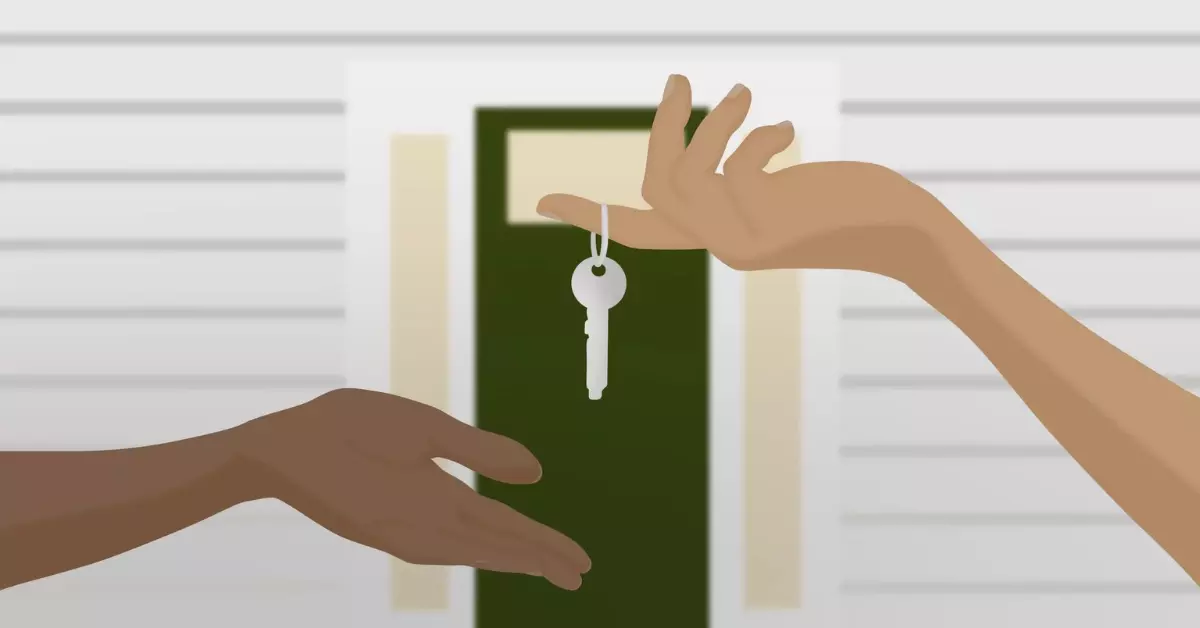What are My Rights As a Tenant-at-will in Massachusetts?
As a tenant-at-will in Massachusetts, you have the right to live in a property with the landlord’s permission but without a fixed lease term. However, the landlord can terminate the tenancy at any time with proper notice.
what are my rights as a tenant-at-will in massachusetts? Living as a tenant at will in Massachusetts means that you have the right to occupy a rental property with the consent of the landlord but without a fixed lease term.
However, it is important to understand that as a tenant at will, the landlord can terminate the tenancy at any time with proper notice.
This could leave you with a short amount of time to find a new place to live and should be a consideration when deciding on a rental situation.

Understanding Tenant At Will Status
Tenant at will is a type of rental agreement that gives tenants the right to occupy a property without a lease. This means that the tenancy can be ended by either party at any time, without necessarily giving a reason.
As a tenant at will in Massachusetts, it’s important to understand your legal rights to avoid misunderstandings and disputes with your landlord.
Here are some key points to note:
- A tenant at will agreement is a type of oral or written contract where the tenant pays rent to the landlord.
- This agreement can be terminated by either party at any time, as long as reasonable notice is given.
- Tenant at will agreements are common when someone temporarily moves into another’s property, like a rental sublet or a house-sitter.
Common Misconceptions About Tenant At Will Status
Many people assume that tenant-at-will agreements offer no legal protection for tenants. However, this is not necessarily true.
As a tenant at will in Massachusetts, you still have legal rights that protect you from certain forms of eviction or harassment.
Here are some common misconceptions about tenant at-will status:
- “I can be evicted at any time without notice.” While it’s true that tenant-at-will agreements offer more flexibility for termination, landlords are required to give reasonable notice (usually 30 days) before ending the tenancy.
- “I have no legal protection against harassment or unsafe living conditions.” Tenants will still have basic legal protections against landlord harassment, illegal lockouts, and unsafe living conditions. These protections are provided by state law and cannot be waived in a rental agreement.
What Tenant At Will Status Entails
Tenant-at-will agreements offers both pros and cons for tenants. On the one hand, they offer flexibility and lower barriers to entry for renters who need a temporary housing solution.
On the other hand, they can also be a less secure option, as tenants can be asked to leave without cause.
Here are some key things to keep in mind:
- Tenant at will agreements are usually month-to-month, meaning that rent is paid on a monthly basis rather than a long-term lease.
- Landlords can still increase rent with proper notice, as allowed by state law.
- Tenant at will agreements are generally less formal than written leases, which means that they may not cover all the necessary terms and conditions for the tenancy.

How Tenant At Will Differs From A Lease
Tenant at will agreements differ from traditional written leases in several ways. The most significant difference is the level of flexibility or security offered to the tenant.
Here is a summary of the primary differences:
- Tenant at will agreements are more flexible, as they can be terminated at any time with proper notice. This is in contrast to written leases, which usually require the tenant to fulfill the entire lease term or face penalties.
- Written leases provide more security for tenants, as they cannot be terminated without just cause and require a formal legal process to end the tenancy.
- Tenant at will agreements are generally less formal than written leases, with fewer provisions and details covered. This may make them easier to understand and use, but may also leave more room for confusion and disputes.
Your Rights As A Tenant At Will In Massachusetts
In Massachusetts, tenants at will have some legal rights, even though they do not have a lease. You should be aware of these basic rights in case any conflict arises between you and your landlord.

Your Right To Privacy As A Tenant At Will
Tenants at will in Massachusetts have the right to privacy. This means that landlords must give notice before entering the leased space.
The notice should be in writing, and it must be served at least 24 hours before entering the property.
In case of an emergency, the landlord might enter without notice, but they must still give you notice as soon as possible.
As a tenant at will, you also have the right to refuse entry to your landlord, except in emergency or court order situations.
Your Right To A Habitable Living Space
Tenants at will in Massachusetts have the right to a habitable living space. This means that your landlord must maintain the property and make necessary repairs.
If there is a problem with the property, such as a broken heating system, you must inform your landlord in writing.
If the landlord fails to take corrective action in a reasonable amount of time, you may be able to terminate the agreement or withhold rent payments.
Your Right To Notice Before Eviction
Tenants at will in Massachusetts have the right to notice before eviction. The notice must be in writing, and it must be served at least 30 days before the eviction.
If you have lived in the property for more than a year, the notice must be served at least 60 days before the eviction.
Only a court order can legally evict a tenant at will.
As a tenant at will in Massachusetts, you have the right to privacy, a habitable living space, and notice before eviction.
You also have certain legal rights that protect you from unlawful eviction, harassment, and retaliation.
Make sure that you fully understand these rights when entering into a tenant-at-will agreement.
FAQs for What are My Rights As a Tenant-at-will in Massachusetts?
What Rights Do I Have As A Tenant At Will In Massachusetts?
As a tenant at will in Massachusetts, you have the right to occupy the rented property as long as you make timely payments.
Can My Landlord Evict Me Without Notice As A Tenant At Will?
Yes, a landlord can evict you as a tenant at will in Massachusetts without giving any notice, as long as it’s legal.
Can A Landlord Raise My Rent As A Tenant At Will In Massachusetts?
Yes, landlords can raise rent for tenants at will in Massachusetts, but they must provide a written notice 30 days in advance.
What Happens If My Landlord Sells The Property While I’M Renting?
If your landlord sells the rental property while you’re renting as a tenant at will in Massachusetts, your lease is void, and the new owner can ask you to leave.
Conclusion
Navigating tenant-at-will rights in Massachusetts doesn’t have to be a maze. You are empowered with key protections like notice before eviction, security deposit returns, and the right to a habitable home.
Be proactive, assert your rights, and ensure you’re getting the fair deal you deserve.
Reference
https://www.mass.gov/guides/the-attorney-generals-guide-to-landlord-and-tenant-rights